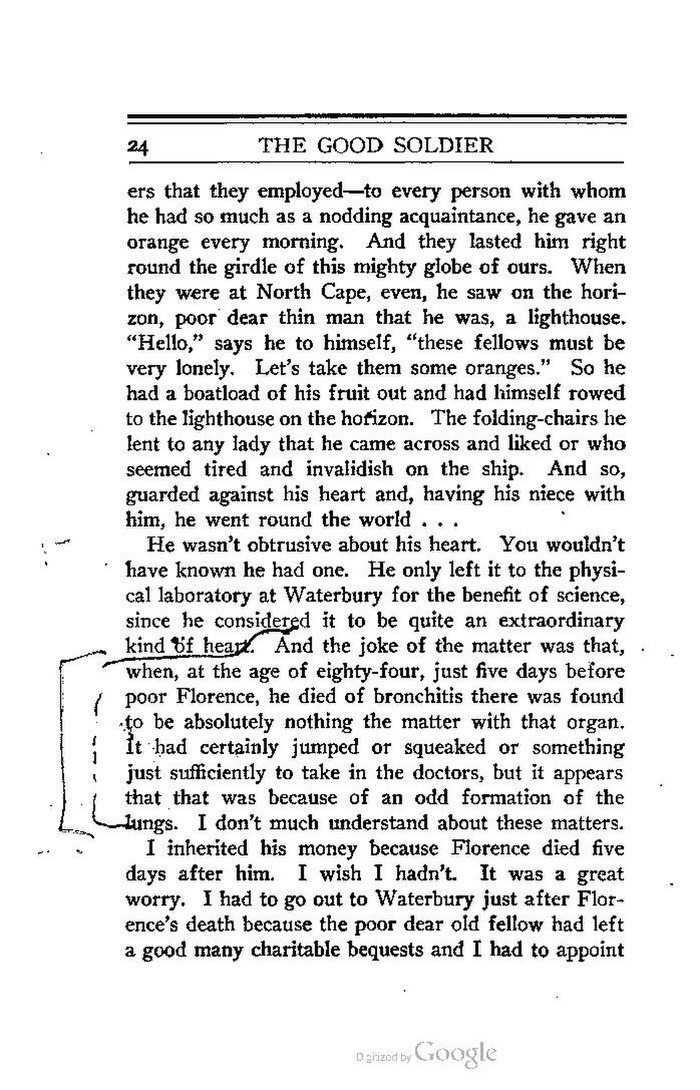ers that they employed—to every person with whom he had so much as a nodding acquaintance, he gave an orange every morning. And they lasted him right round the girdle of this mighty globe of ours. When they were at North Cape, even, he saw on the horizon, poor dear thin man that he was, a lighthouse. "Hello," says he to himself, "these fellows must be very lonely. Let's take them some oranges." So he had a boatload of his fruit out and had himself rowed to the lighthouse on the horizon. The folding-chairs he lent to any lady that he came across and liked or who seemed tired and invalidish on the ship. And so, guarded against his heart and, having his niece with him, he went round the world . . .
He wasn't obtrusive about his heart. You wouldn't have known he had one. He only left it to the physical laboratory at Waterbury for the benefit of science, since he considered it to be quite an extraordinary kind of heart. And the joke of the matter was that, when, at the age of eighty-four, just five days before poor Florence, he died of bronchitis there was found to be absolutely nothing the matter with that organ. It had certainly jumped or squeaked or something just sufficiently to take in the doctors, but it appears that that was because of an odd formation of the lungs. I don't much understand about these matters.
I inherited his money because Florence died five days after him. I wish I hadn't. It was a great worry. I had to go out to Waterbury just after Florence's death because the poor dear old fellow had left a good many charitable bequests and I had to appoint
